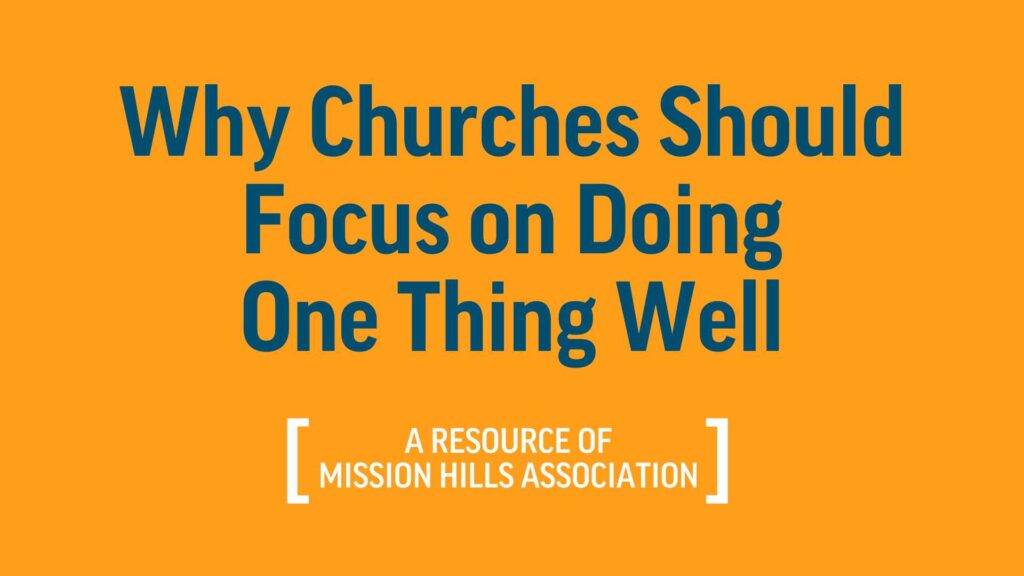
I grew up in a Christian home, attending church on Sunday morning, Sunday night, and mid-week. I learned the songs and Bible stories, and as a young child gave my life to Jesus. At the age of twelve I wanted to become a pastor, and that desire never changed, so I went to Bible college, seminary, and began serving as a pastor. I was all about discipleship, teaching and training people to follow Jesus. But…
I didn’t have a heart for people who didn’t know Jesus. I thought I did, but to be honest, it wasn’t deep or heartfelt.
I’m grateful for my Christian upbringing, but I grew up in a judgmental spiritual atmosphere. I was told that non-believers were the sinners and the ones to stay away from. I would hear, “Hate the sin but love the sinner,” but I didn’t see the sinner being loved.
And then … Jane (my wife) and I had wonderful neighbors who weren’t followers of Jesus. We got heavily involved in our children’s local public schools and enjoyed friendships with incredible people who didn’t follow Jesus. We went to our kids’ sporting events and concerts and became friends with kind people who didn’t follow Jesus. We shoveled snow along helpful neighbors who didn’t follow Jesus.
It finally hit deep in my heart: These special people are going to hell, they don’t realize it, and we need to do everything we can to point them to Jesus and Heaven. (By the way, Jane was two steps ahead of me on this!) And when I began to genuinely care for those who didn’t know Jesus, it changed how I lead, preached, who we hired, how we did ministry, and much more.
And a movement of the Holy Spirit began in the church!
May we consider the following in establishing an evangelistic movement in our churches:
#1 The leaders must have a genuine passion for people who don’t know Jesus
This genuine passion must start at the top and trickle down to other key staff and lay leaders. If it doesn’t start with the Lead Pastor it’s not going to go anywhere. It’s just not.
Let me ask a question: Why would Jesus bring people who don’t know Him to a church that doesn’t really want them? They might say they want them, they might even think they want them, but do they really? How does that show in the leaders’ personal life, preaching, ministry focus and hiring process? How does it show in the ministry focuses of the church?
If a church isn’t seeing many guests who don’t know Jesus, there’s probably a fundament reason why, and that is because God is not sending them to that church. Why would he?
#2 Place evangelism front-and-center throughout the church
We had a forty-five-word mission statement that I could never remember, and we reduced it to two words and a period , “Transformed Lives.” We would say the word “period” at the end, meaning that’s what we were about, lives being transformed by Jesus, PERIOD.
We began to shoot videos of people who had recently given their lives to Jesus. We would show these videos to the whole church – a new video every few weeks – and at the end of each video the person who was being highlighted would say, “My name is _________, and I’m a LIFE TRANSFORMED, PERIOD.” Powerful!
We made baptisms a huge deal (including spontaneous) and would celebrate people’s new faith in Christ in worship services. Additionally, once-a-year we provided a large outdoor baptism service. There’s not only great impact when people share their salvation stories, but often they invite their non-believing friends and family members, and God works in their hearts. I once preached a sermon titled “Radical Splash”, and in all four services I jumped fully clothed into the baptistry, making a big deal about the importance of going public with a person’s newfound faith in Jesus. It made a difference.
We required that evangelism be a non-negotiable priority for all of our ministries – from children on up – and when we hired new staff we ensured that this was part of their heartbeat as well.
It soon became evident that there was a spiritual hunger in our area and that people wanted to know what God had to say, even though they might not like it or agree with it. And we found it was new believers, and even non-believers, who would invite their non-believing friends, far more so than the long-term believers.
And let me be clear – although we placed those who didn’t know Jesus as a very high priority, we still preached God’s word verse-by-verse without compromise, worshipped God without apology, talked about sensitive cultural hot-button topics, and focused on long-term believers. It’s a both/and, not an either/or.
#3 Preach sermons that consider people who don’t know Jesus
I began to preach differently, and some called me an expository/evangelistic preacher. I still preached expository messages (verse-by-verse through books of the Bible), but God somehow gave me a new heart to see the Scriptures through the eyes of a non-believer. I didn’t dumb down the messages, but I explained everything. I would tell them, “Turn to Matthew chapter eight. That’s the first book in the New Testament, and it’s on page 742 in the Bible in the seatback in front of you. And if you don’t own a Bible, please take that Bible home. It’s our gift to you.” I would still use the words “sanctification” or “redemption” or “justification” but would explain what they meant. And here’s something to remember: A ton of the Christians in the room are foggy as to what those words mean too and appreciate the explanation.
#4 Make the next steps simple and obvious
At the end of a sermon I would often (not always) lead the people to pray with me to accept Jesus as their Savior. I would say something like, “I’ll pray the words, but you say them from your heart to the Lord,” and led them step-by-step through that prayer. People need to know what they are doing and how to do it.
I would then direct them to the “I Said Yes” cards (meaning “I Said Yes to Jesus”) in the seatback in front of them and ask them to fill it out (minimal information – make it simple and obvious). I would then ask them that when they were leaving to go to the “I Said Yes” table in the lobby where someone would give them a new Bible and other helpful materials to get them started on this faith journey. We didn’t ask people to come forward but invited them to connect on the way out of the church (make it simple and obvious).
We provided “Starting Point” groups, highly relational small groups using the curriculum developed by North Point Community Church. These groups were for those who were seeking, brand new in their faith, or returning to their faith. Only eight weeks in duration (make it simple and obvious). And most who came as non-believers left as followers of Jesus (they wouldn’t be attending if they weren’t already seeking).
Additionally, we tried to make our entire church “simple and obvious” from our website to the parking lot to how to check the children in, and more. We didn’t just point people to the children’s area but had trained volunteers take the parents and kids to help them check in.
We tried to make our church language simple and obvious, meaning we tried not to have a bunch of insider terms for various ministry areas and events that only insiders would understand. We assumed that people didn’t know, because a lot of them don’t, even those who regularly attend.
#5 Pray
A person who is curious about Jesus is on a spiritual journey, and Satan wants to derail this journey. When someone comes to Jesus it is a supernatural act, and ultimately it is all about Jesus and nothing about us. In fact, I don’t think we should ever use the words, “I led _____________ to Christ,” because it was the work of the Holy Spirit who drew them and Jesus who saved them.
Our role is to care genuinely and deeply, speak up and provide avenues for them to come to faith in Jesus, be witnesses, make it simple and obvious, and help them get connected and cared for. It’s the Spirit who does the heavy lifting and the life transformation from the inside out, so we need to be completely dependent upon Him.
May God use us as we genuinely care for those who don’t know Jesus, and may we experience an evangelistic awakening in our churches like never before!
This article was written by Mike Romberger, previous lead pastor of Mission Hills Church.




